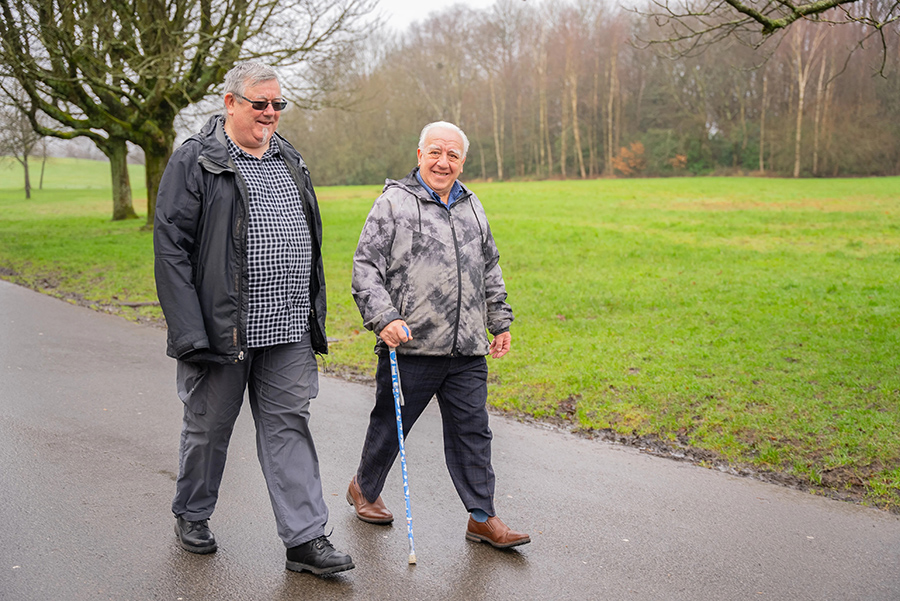A research study from Imperial College London and Coventry University has revealed that there is a strong association between an older person’s view of how they are ageing and how well they will physically recover after a fall.
The study findings suggest how important psychological factors may be in post-fall physical recovery.
In the study, researchers found that individuals with more positive self-perceptions about ageing at baseline, such as a person saying that age was not stopping them from doing what they wanted to do in life, were significantly less likely to experience physical problems or need help with daily activities after the fall.
Dr Toby Ellmers of Imperial College London’s Department of Brain Sciences, who co-led the study, said: “Those who expressed more positive feelings about their own ageing seemed to be protected against worse physical consequences after a fall. There was substantial difference in the rate of physical recovery in the people we studied, and this seemed to be linked to their initial beliefs about growing older.”
The study involved longitudinal data from nearly 700 older adults across England between the ages of 60-90, who had not had a fall in the previous years. The data included questionnaire responses that measured mindsets and beliefs about ageing.
Then, the researchers assessed the members of this group who experienced a fall in the following year, to explore links between their subsequent recovery from this fall and their initial ageing-related mindset and beliefs. This included measurements of post-fall walking speed, whether assistance was needed for daily living activities, and how physically inactive the person was after their fall.
Those who had initially shown more ‘positive’ ageing mindsets, such as believing that ageing was not stopping them doing what they wanted to do, were far more likely to physically recover in the months after a fall.
Dr Ellmers continued: “Our results suggest that changing the way that some older people view their ageing process could play a key role in improving recovery and wellbeing.
“It’s even possible that simple ‘tweaks’ to help people develop a more positive mindset around ageing – such as having discussions with a friend or relative about the positives associated with ageing – could help. This is something we are very keen to explore in future research.”
The results were found to be independent of other important factors such as age, gender, depression, and pre-fall physical function. The results also controlled for whether the fall led to physical injury or not. As such, the researchers say the findings cannot simply be attributed to the older adults with a ‘positive’ mindset being younger, fitter, less depressed, or sustaining fewer injuries in general.
The researchers found that an individual scoring the highest possible score on the ‘self perceptions of ageing’ measurements – or, having the most positive mindset – would have 162 percent lower odds of showing slow gait speed, 200 percent lower odds of being dependent on others to perform daily living activities, and 123 percent lower odds of physical inactivity following a fall, compared to an individual scoring the lowest possible score.
Co-lead Dr Mathew Hill of Coventry University’s Research Centre for Physical Activity, Sport and Exercise Sciences, said: “Although we knew from previous research that negative mindsets and beliefs about ageing are associated with increased risk of negative health outcomes, such as stroke and mortality, this is the first research linking these specifically to physical recovery after a fall.”
The authors note that the present study did not control for the severity of different falls (but only if injury did occur) and does not allow definitive conclusions about causality. As a next step, the researchers are hoping to explore whether addressing negative beliefs about ageing can help stave off physical decline following a fall.
The study, ‘Self-Perceptions of Aging Predict Recovery After a Fall: Prospective Analysis From the English Longitudinal Study of Aging’, is published in the Journal of the American Geriatrics Society.
Earlier this year, the NHS rolled out an AI tool that can predict a patient’s risk of falling with 97 percent accuracy, preventing as many as 2,000 falls and hospital admissions each day.
The post Positive self-perceptions about ageing linked to better recovery after a fall, study shows appeared first on AT Today – Assistive Technology.

